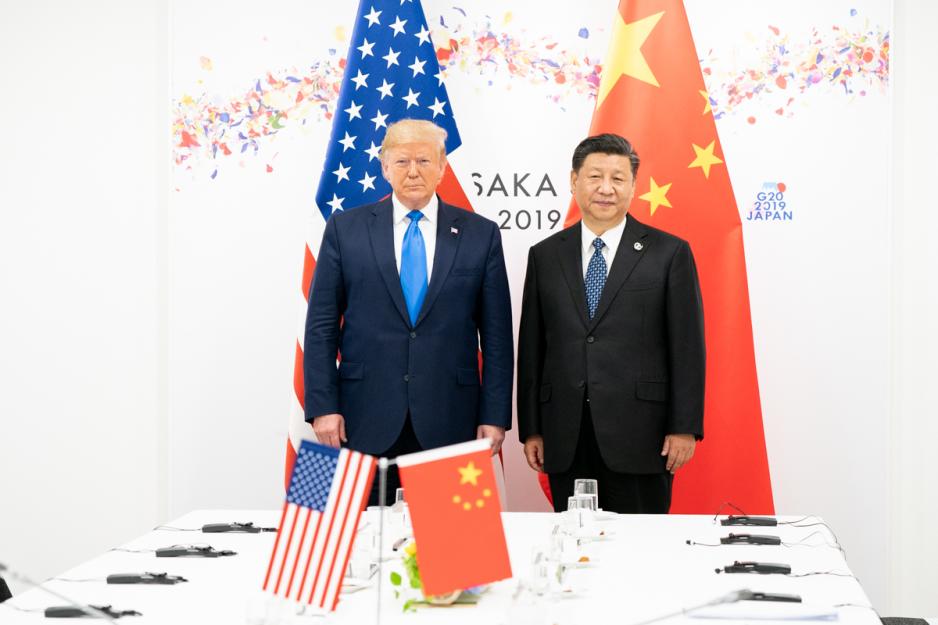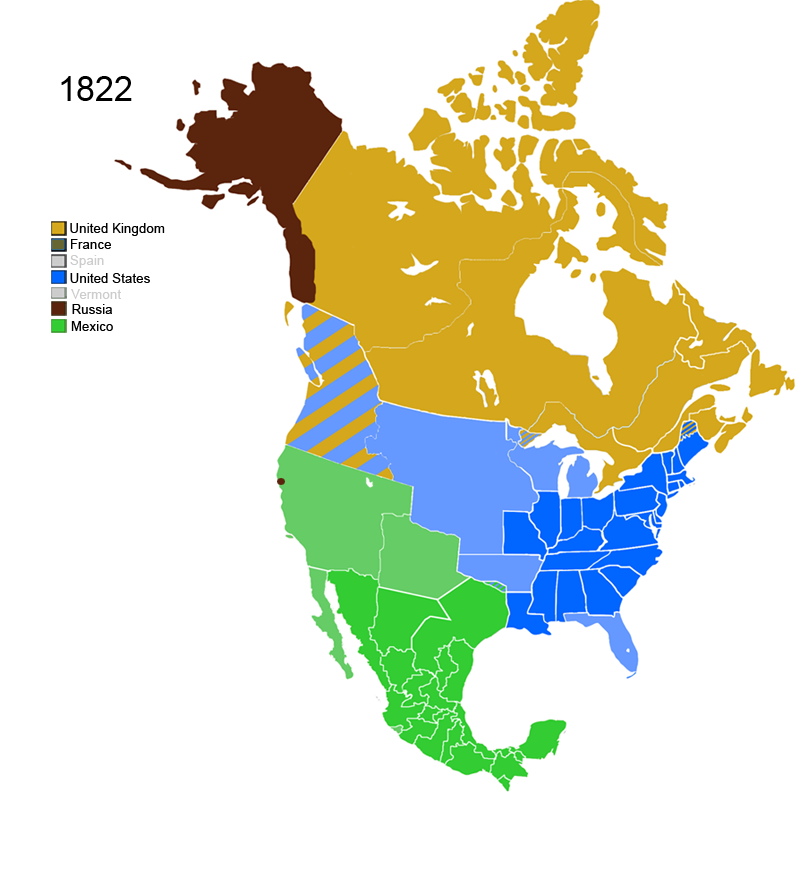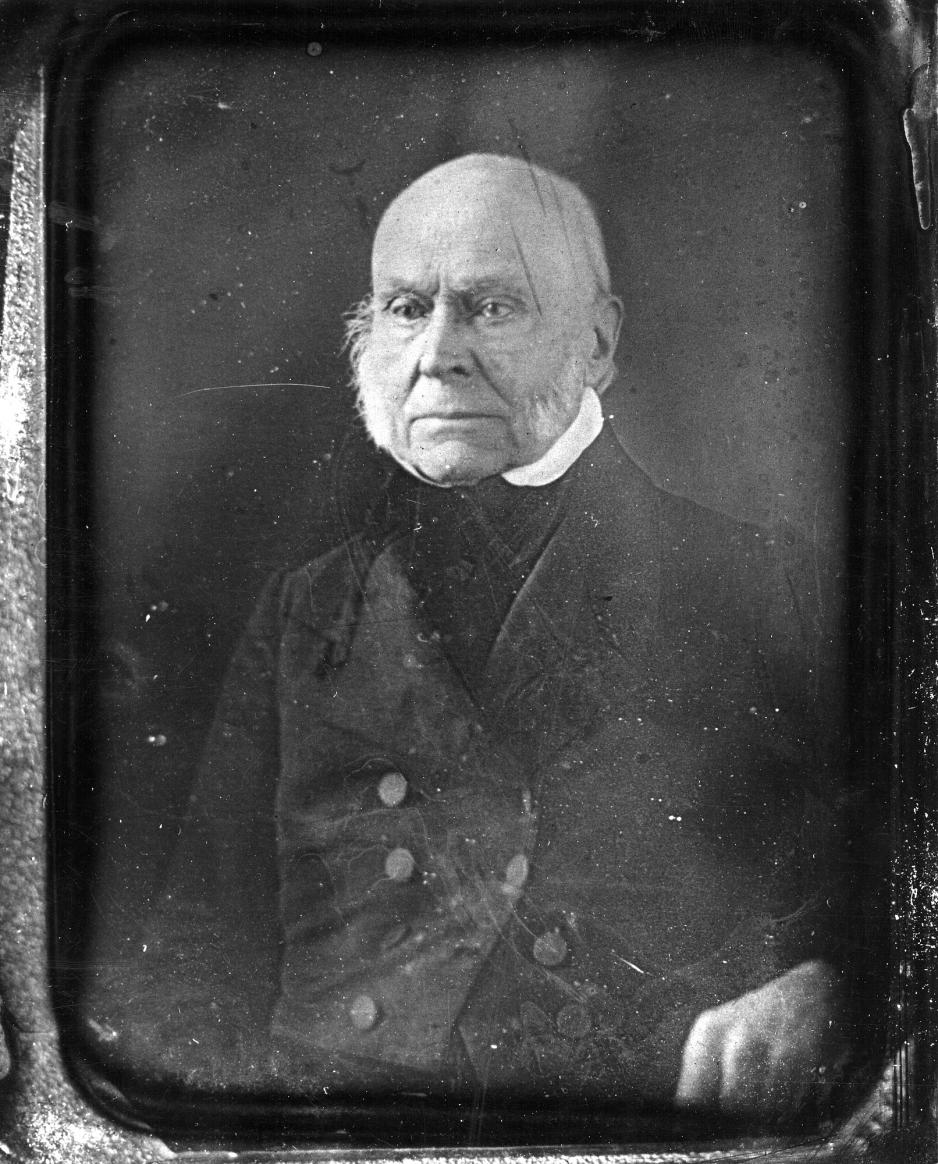Follow-Up: Is China Really Threatening Conquest in the Arctic?

President Donald J. Trump joins Xi Jinping, President of the People’s Republic of China, at the start of their bilateral meeting Saturday, June 29, 2019, at the G20 Japan Summit in Osaka, Japan. (Photo: Official White House Photo by Shaelah Craighead/Wikimedia Commons)
When created, the Monroe Doctrine was just as much about diplomacy as it was about military action. Particularly when it comes to China in the Arctic, decision makers should not be ignorant of its historical context or its influence.
Dear Readers,
Last week, I received a question regarding a historical anecdote I included in my recent piece on the Monroe Doctrine. The question was:
“Dear Editor,
The date of the purchase of Alaska in 1867 suggests that the Arctic was not fore of mind when the Monroe Doctrine was conceived (at the time, the Spanish were the bigger problem).... Is a correction or at least a comment about the purchase of Alaska from Russia to help pay the Russian Crimean War debt an important missed piece of information?”
This is an excellent question! And a very important one to address.
Also read
I agree completely that in reality, the United States did not see Russia in the North American Arctic as a pressing threat to US national security, even if it was identified in such a way at the time. The North American Arctic as a US policy interest was absent for most of the 19th century.
I had hoped to make two points in this article. I was worried about scaring off readers with too much history, so I ended up editing out a lot of the information. That decision came mostly at the expense of the second point.
Primarily, I wanted to explain why an important US foreign policy principle must be understood in the context of the Arctic, especially in relation to China. Today, the Monroe Doctrine carries along with it a certain kind of narrative about a certain kind of threat and mandates a certain kind of response.
The US acts because it must—it is who the US is and has always been. It is something that has been deeply ingrained and makes any circumstance pertaining to the North American Arctic more likely to be viewed by the US as a national security concern. I think that in this case, it has become a poor substitute for a well thought-out strategy.
The Monroe Doctrine came into being at a time when the US lacked both the naval and military power to enforce it. The US had to rely primarily on diplomacy and careful strategizing.
The second point was that what the Monroe Doctrine represented in 1823 is completely different from what it represents today. The Monroe Doctrine came into being at a time when the US lacked both the naval and military power to enforce it.
The US had to rely primarily on diplomacy and careful strategizing. At its inception, the Monroe Doctrine was not an empty threat of war or military defense against imperialism, but it wasn't a full threat either.
Dreams of US Expansion
There was also a calculus from Secretary of State John Quincy Adams about the Manifest Destiny and how the United States would expand. (Note: The Manifest Destiny was also an important early US doctrine, and “is the idea that the United States is destined—by God, its advocates believed—to expand its dominion and spread democracy and capitalism across the entire North American continent”.)
So it also gave the US a convenient national defense rationale to pursue its own interests and push out competition.
Yes, there were tensions with Russia and yes, the tsar made some very strong claims in his Ukase of 1821. But then again, he never bothered to enforce them. The Russian-American Company was struggling, and Russian America also posed a problem for the tsar--there had been attempts to establish Russian settlements, but they were not very successful.
Still, the territorial disputes with Russia were among the foreign policy concerns listed in President James Monroe's address. So territorial disputes with Russian America were identified as a national security concern, even if Russia was not the same kind of boogey man that the Monroe Doctrine was ostensibly intended to defend against.
The Role of John Quincy Adams
Adams was largely responsible for maneuvering that. He was an incredibly skilled diplomat and he spent a good chunk of his career managing US-Russian relations. His diplomatic career actually began in Russia at the age of 14, when he became the assistant to the US Minister to Russia. He served in numerous posts throughout Europe, eventually returning to Russia to serve as Minister himself. He was then appointed as President James Monroe’s Secretary of State.
He was not genuinely concerned at all that the US would need to go to war with Russia over that territory, in my opinion. Still, Adams refused to let the tsar's claims go unaddressed because in time, he wanted the United States to occupy as much of that space as possible. Even though Britain and the US jointly occupied the Oregon territory, Adams insisted that territorial delimitation be negotiated separately.
So when it came to this particular conflict, the Monroe Doctrine gave the US a better footing for negotiation, more than anything. It is worth noting that not long after the address, in 1824, Russia and the US negotiated the Russian-American Convention of 1824, which delimited those territorial claims and was remarkably favorable to the US. Russia then negotiated a separate agreement with Britain the following year.
Ironically, Adams may have been such a talented diplomat that he left himself with no opportunity to secure an enduring legacy for his own presidency. Historians have suggested that Adams was such a gifted diplomat throughout his career that by the time he succeeded Monroe as president in 1825, major foreign policy conflicts had been addressed and resolved. Without any urgent, dramatic foreign policy developments, and with things relatively quiet at home, there was nothing much notable about his presidency.
Why This History Matters
It is clear to me now that without including all of those details, the history could be read as if the US and Russia thought of each other as enemies back in the 1800s—and particularly in relation to Arctic geopolitics. That is not true.
I was actually trying to point out the opposite; branding the dispute in that way offered more of a clever negotiating tactic. It was more about securing resources and future opportunities.
The United States is a country that prides itself on its history, its precedents, and its reputation. Its leaders sometimes hold steadfast to rigid interpretations of abstract concepts from their Founding Fathers as guides for policy, even though the meanings are always in flux.
In the case of the Monroe Doctrine, one should think twice before taking a centuries-old US foreign policy principle at face value. It had much more to do with intellectual and diplomatic strength than it had to do with the exercise of military power. To think that this doctrine implies a swift leap to brute force is misguided and foolish.
Furthermore, John Quincy Adams, arguably one of the most talented diplomats in American history, is rolling around in his grave as we speak at the thought that his brainchild could be skewed and caricatured in such a way that it favors weapons over wisdom. Yet so it endures, either consciously or unconsciously, in the backs of many, many minds.



